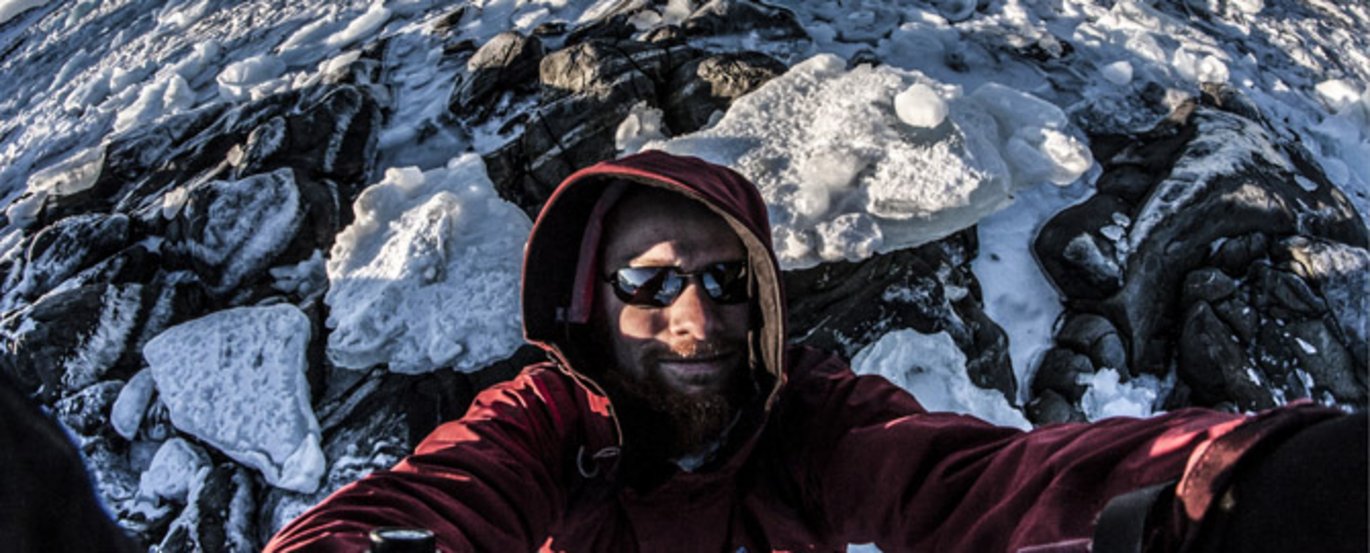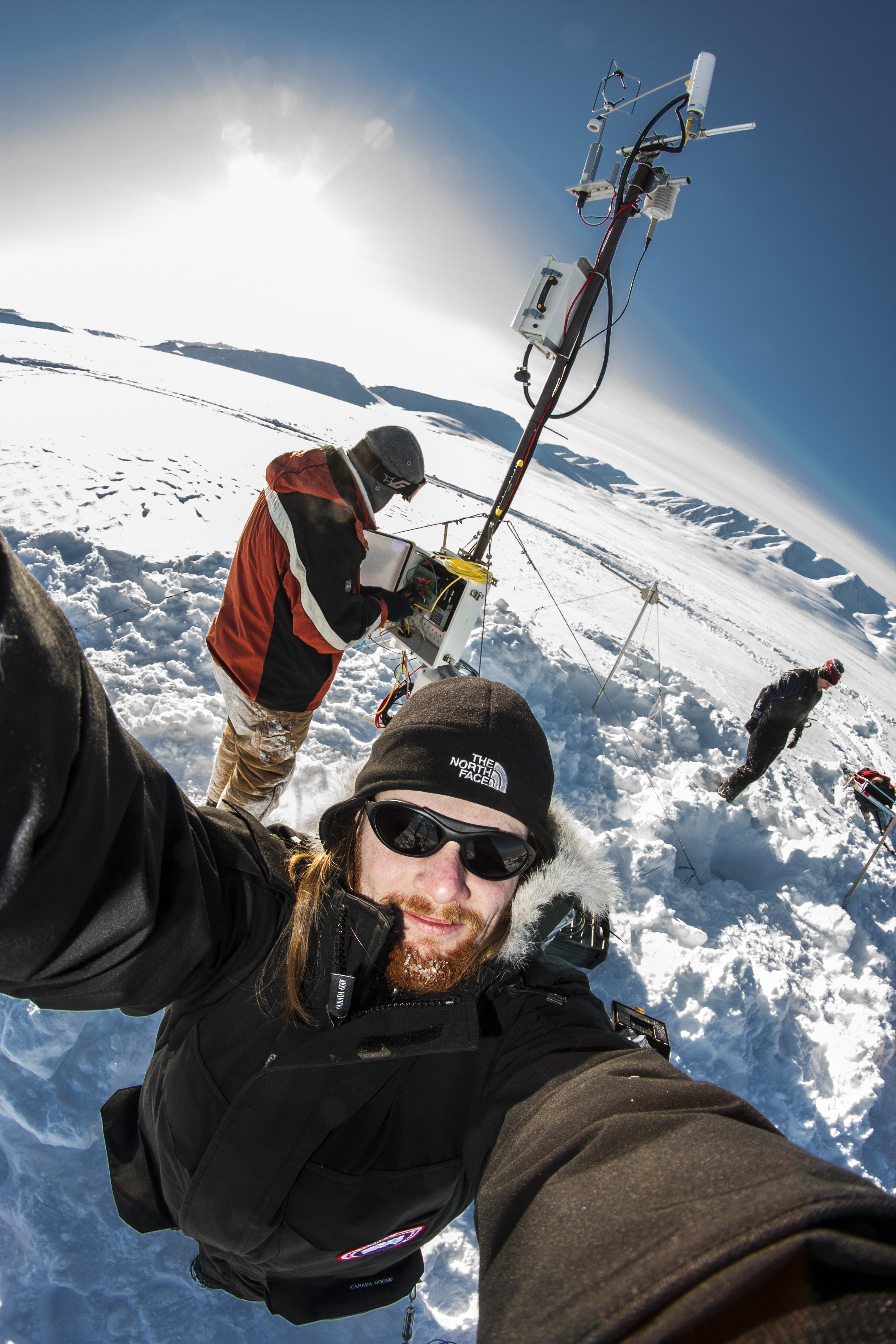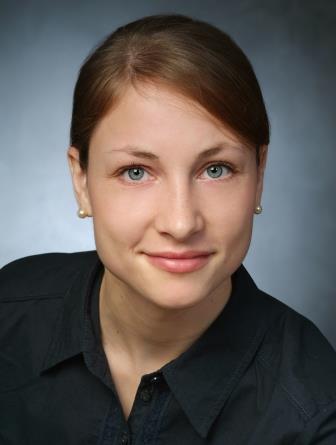All alone in the world or part of a research environment?
The PhD programme is associated with academic loneliness and uncertainty. It can be tough, but it’s also part and parcel of a researcher’s life according to Jakob Sievers and Anne Peschel, both of whom are PhD students at AU.



Jakob Sievers is a PhD student at the Department of Environmental Science in Roskilde where he researches in the exchange of CO2 between sea ice and the atmosphere in North-East Greenland. Sievers estimates that he has around 20-40 colleagues in the field globally. At AU the only people who conduct research in precisely this field are himself, his supervisor Lotte Sørensen, and the leader of the Arctic Research Centre Søren Rysgaard. Though he does have other colleagues at AU who either use similar techniques and measuring equipment or research in Arctic conditions. But the academic loneliness, which 16 percent of the PhD students at AU experience, and which 40 percent of the PhD students at the Department of Environmental Science experience, is something he knows quiet well.
”During my daily work I mostly talk to researchers who use the same methods as me, but in other areas. So if I sit there with a problem that has to do with sea ice then it’s difficult for me to get any help to solve it.”
The loneliness is, however, only related to the academic aspect as he never feels alone at his workplace.
“We’re a little department. There are fewer people here, but we’re closer to each other. It’s a bit like a village.”
Think like a researcher
Even though Sievers can easily end up working 70 hours-a-week, he rarely feels stressed. But he did at the beginning of his PhD.
”There was a time when I didn’t feel like I had anything to offer and I couldn’t find my out where I fitted in. I think this had to do with the transition from my Master’s degree, where you’re work is very much report-related and you are taught to answer questions rather than ask them. Research is a completely different process. Here it is all about asking the good and relevant questions, arguing for what is important to be able to answer, and then finding that answer. It took me about two years to learn to think in terms of questions and not answers.”
Even though 13 percent of the PhD students at AU feel themselves to be very stressed, none of the PhD students at the Department of Environmental Science have answered that they felt stressed.
“We’re outside of town so people allow some time for traffic on the way home. So I rarely meet other people here in the evening. And as we aren’t that many PhD students, we don’t have PhD defences very often. I think that also plays a part. You can really put pressure on yourself and your expectations by seeing other PhD students defend their projects all the time.”
Hit by uncertainty
Two-and-a-half years into his PhD programme he feels at home with the material, but still has moments where the uncertainty hits him.
“People look at PhDs as if they know everything within their field and you often see them making statements on TV. That’s a great deal of responsibility and I don’t know whether I could go on TV and act like an expert in my field. Especially at times where I am uncertain of the direction of my own project, as I can feel that all the others know just what they’re doing and that I’m not getting anywhere at all.”
He has also noticed that his uncertainty increases as the weekly meeting with his supervisor approaches.
”As we meet every week I’m of course under a bit of pressure. I have to deliver something new and that’s something I notice before the meeting. But my supervisor often helps calm things down again during the meeting.”
Almost a hobby
Despite the pressure, uncertainty and academic loneliness, Sievers feels privileged as a PhD student.
“It is tough and I work much more than an average Dane but I am doing something I really want to. For me, this is almost like a hobby and I also make a difference.”
Looked upon as students
In the cellar beneath the Department of Business Administration, the department’s PhD students are gathered along one corridor. Anne Peschel is one of them. She comes from Germany and has been a PhD student at AU for more than a year. She is attached to the MAPP research centre and researches in consumer behaviour. She carries out experiments in which she examines consumer perceptions of the pricing of food products.
She is pleased to be a PhD student at AU and looks forward to coming to work each morning. She also enjoys being able to decide for herself whether to work from home or when to start work each day.
That said there are a few things that could be improved in her opinion. For example, she does not always feel she is respected as a co-researcher at the department.
“That’s something that could be better. In my research group we see each other as colleagues, but at the department in general there is a tendency for the PhDs to be seen more as students rather than researchers, and we are treated differently than the other researchers. For example, we have to take part in the obligatory courses, even though they are irrelevant for our research. We are all placed along the same corridor without taking our area of research into account. And we have just had our budget limited, so we only have DKK 30.000 to cover travel expenses, conferences, books, courses and the rest for the three year PhD period.”
Harsh tone
The PhD survey identifies the department as one of the places where the tone is harsh and negative and where the environment is competitive.
”It’s true that the tone was pretty harsh previously. But that has changed because some of the PhD students pointed out that the tone used at the interim evaluations was unnecessarily harsh. The PhD students were asked about their projects in a very direct fashion that they found condescending. Focus was on the negative aspects rather than being constructive and focusing on what you could do better.”
Loneliness is a condition
Anne Peschel is often alone with her research as too few people work experimentally within her research field. But loneliness is not a problem for her - she views it as a condition of research.
“Loneliness is part of the package when you’re becoming a specialist within a field. But there is always someone you can ask. Maybe they’re not at the same university or in the same country as you. But then you have to use your network and draw on the colleagues you meet at conferences.”
Just like 82 percent of the PhD students at the department, Peschel sometimes feels uncertain.
“Definitely. I’m uncertain about whether I know enough about my field and at times I am unsure about my work, but more often than not my supervisors get me back on track.”
“On the other hand, I’m rarely stressed and maybe my German background plays a role here. In Germany you normally work for a professor and teach at the department. That’s what you get paid for while research is something you do in your leisure time. So I feel privileged to be paid to do research and to have time for it.”

